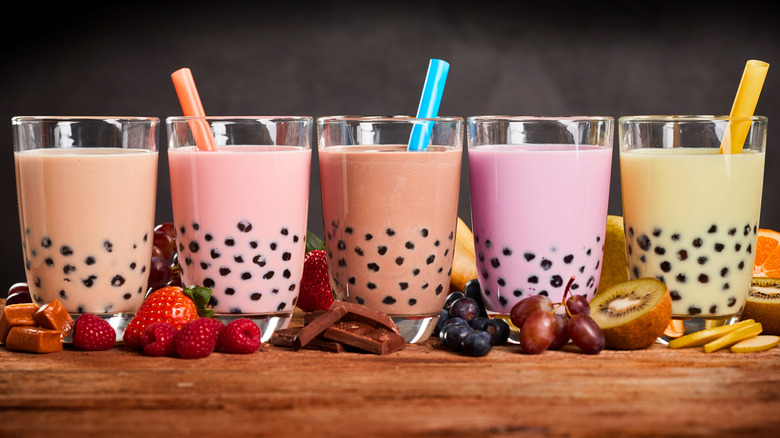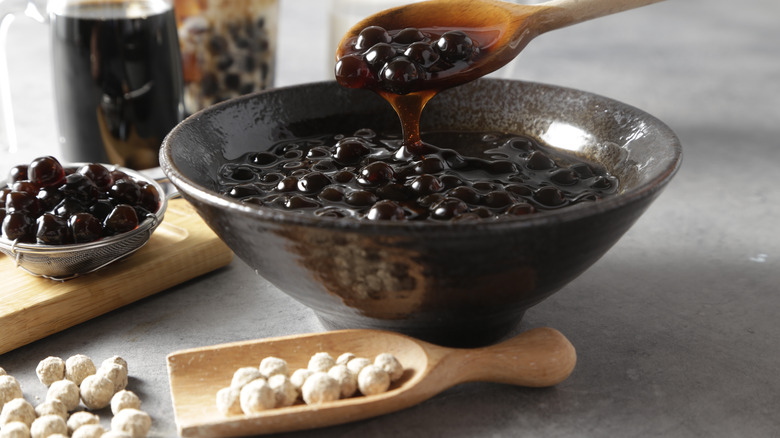Don't Believe This Boba Tea Cancer Myth
It's official, boba tea (also known as "bubble tea") has taken the world by storm and is primed to be one of the biggest global drink trends of the future. According to EHL Insights, this vibrant and versatile beverage, which originated in Taiwan in the 1980s, has risen to almost epic heights and has enjoyed unprecedented popularity, especially with the social media-obsessed youth cultures of Australia, Europe, and the United States. Made primarily from hot or cold tea mixed with milk and tapioca balls, this playful and fun concoction is often very colorful and is as visually stunning as it is delicious to drink.
That's not to say that boba tea does not have its detractors. There have been recent murmurings that there may be negative side effects associated with consuming boba tea. Several news outlets, including the Daily News, via Huffington Post, sounded the alarm by reporting that tapioca balls may be carcinogenic and linked to polychlorinated biphenyls (PCBs). However, there is new evidence to suggest that those findings were misleading. Here's everything you need to know about boba tea and any links it may have to cancer.
Debunking the cancer myth
According to Healthline, it all began with a German study that was conducted in 2012. The researchers claimed that samples of tapioca pearls sourced from a local bubble tea chain contained traces of styrene and acetophenone. New findings reveal that original researchers in the German study may have mistakenly identified these compounds as harmful PCBs when they are not.
Furthermore, it was later revealed that the original study was never shared in a medical journal or reviewed by professionals. If that was not bad enough, there remains quite a bit of ambiguity around the samples used in the study and whether or not the compounds were found in all types of bubble tea. Still, the most compelling reason for revisiting this research is to unequivocally assert that in all the years since this was first reported on there has been no supporting research to back up the original claim. There is currently no scientific evidence linking bubble tea to cancer and no proof that the seminal tapioca balls that make boba tea so special contain PCBs.
The future of boba tea
This is great news for anybody who is a fan of boba tea around the world. If you are someone who just can't get enough for the sugary beverage, feel free to take a collective sigh of relief. This is proof that just because something makes you feel good, it does not necessarily have to be bad for or increase your risk for cancer.
According to USA Today, the real danger for residents of the United States who are craving a boba tea fix might have more to do with supply chain bottlenecks related to tapioca being imported from overseas. Mai Shi, an executive with Kung Fu Tea, one of the nation's largest boba tea chains, had this to say: "We have warehouses on both East and West Coast, so our shortage compared to other boba brands is way less significant. However, we definitely see a trend that the demand for the entire bubble tea category is ever increasing as people want fresh, made-to-order drinks."
No matter how you look at it, boba tea is here to stay and neither supply chain shortages, nor misinformation around its links to cancer is likely to slow down its rise to "mythic" proportions anytime soon.


